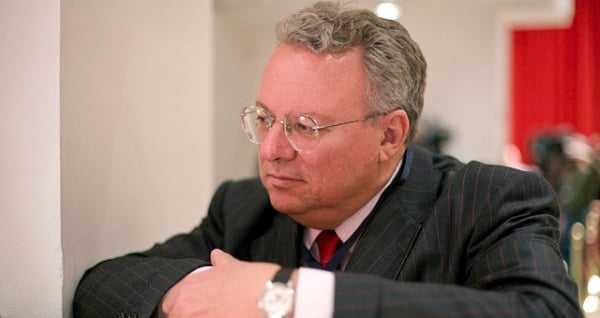Auctions
Loeb Presses Case Against Sotheby’s
Hedge fund manager Daniel Loeb is on a mission to steer a different course for Sotheby's.

Hedge fund manager Daniel Loeb is on a mission to steer a different course for Sotheby's.

Philip Boroff

“Activist” hedge fund manager Daniel Loeb is pressing his case for more control at Sotheby’s as the publicly traded auctioneer struggles to fully capitalize on the art market boom.
Loeb’s Third Point LLC said on Thursday, February 27 that it will nominate the money manager and two allies for board seats, to help cure the 270-year-old auctioneer’s “cultural malaise,” according to its Securities and Exchange Commission filing. Hours later, the New York company reported that 2013 fourth-quarter profit trailed analysts’ forecasts.
The disappointing results could engender shareholder support for Loeb’s proxy battle. Sotheby’s fourth-quarter net income was $1.30 per share, short of the $1.41 consensus of analysts surveyed by Bloomberg. Full-year earnings rose 20 percent to $130 million, but lagged that of 2011, 2010, and 2007, even as art prices for marquee works soared to record levels.
Sotheby’s shares fell seven percent in early trading today. They’re up more than sixfold since the financial crisis but they remain below their all-time high, set in October 2007.
Loeb has cited Sotheby’s “deteriorating competitive position relative to Christie’s,” particularly in contemporary and modern evening sales. Sotheby’s acknowledges that competition is “robust,” as consignors play the two rivals against each other to negotiate a share of commissions that Sotheby’s charges buyers. (Christie’s is privately held and doesn’t disclose its profits.)
Sotheby’s auction commission margin, a closely watched measure, fell for the fourth consecutive year. It took in $15.90 for every $100 of auction sales in 2013, down from $16.30 in 2012 and $20.70 in 2009. While Sotheby’s private sales have grown, auction commissions still represent 81 percent of revenue. In a conference call with analysts, William Ruprecht, the company’s chairman, chief executive, and president, wouldn’t speculate about when auction margins might stabilize. “It is beyond me to be able to give you clarity around which deals we are going to secure at which margins,” Ruprecht said.
Sotheby’s said it was also stymied by a high-profile default. It was forced to acquire the famed 59.6-carat “pink diamond” after a victor who bid $83.2 million defaulted following a November sale in Geneva, it said in a filing.
Recent departures were costly. Patrick McClymont, a former Goldman Sachs Group, Inc. investment banker who is the new chief financial officer at Sotheby’s, cited “meaningful severance costs” as “very senior people” left. Fourth-quarter exits included Tobias Meyer, chief auctioneer, and McClymont’s predecessor, William Sheridan.
Loeb, who ran a thriving business selling skateboards as a teenager at Los Angeles’s Crossroads School, controls 9.5 percent of Sotheby’s shares. He’s softened his rhetoric since October, when he publicly called on Ruprecht to resign. In a letter filed with the SEC at the time, Loeb wrote that Sotheby’s chief since 2000 didn’t “fully grasp the central importance of Contemporary and Modern art to the company’s growth strategy, which is highly problematic since these are the categories expanding most rapidly among new collectors.’’
In January Sotheby’s announced a $300 million special dividend, which at $4.34 per share is an almost 9 percent payout. Its “Capital Allocation and Financial Policy Review” also includes exploiting its expansive 439,000-square-foot York Avenue headquarters, possibly selling the building and leasing a portion back.
“Sotheby’s has made some improvements since our filing,” Third Point wrote on Thursday. But the “entrenched board” lacks expertise in the “fundamental corporate restructuring that Sotheby’s must take,” the $14-billion hedge fund firm said. Sotheby’s responded that it’s met six times with Third Point since August and offered to appoint Loeb to its “active and engaged” board of directors.
“Sotheby’s is disappointed that Third Point has chosen this path,” it said in a release. In the conference call with analysts, Ruprecht declined to take questions about Loeb. The hedge fund manager will also nominate Harry Wilson, a restructuring specialist who had been a partner at Silver Point Capital, and Olivier Reza, a jeweler and former investment banker.
Sotheby’s typically holds its annual shareholder meeting in May. But Asher Edelman, a former corporate activist who has an art finance company, said a resolution may arrive earlier. Referring to the proxy showdown, Edelman said in an interview, “If Sotheby’s thinks it can lose it, there’s going to be a settlement before the actual vote.”